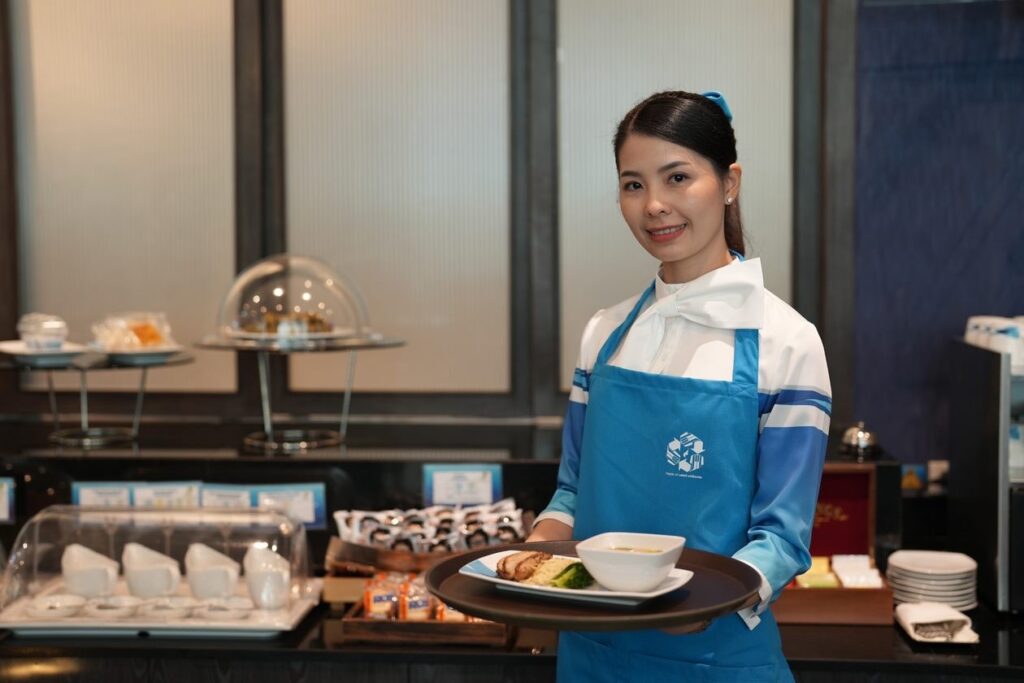Bangkok Airways striving to be Asia’s greenest airline
Bangkok Airways striving to be Asia’s greenest airline
วันที่นำเข้าข้อมูล 4 Oct 2023
วันที่ปรับปรุงข้อมูล 4 Oct 2023

Thailand’s award-winning regional carrier Bangkok Airways is arguably Asia’s “greenest airline,” according to an aviation industry website, citing the company’s strong programs for sustainability and circular economy practices.
For policymakers striving to mitigate climate change, the airline industry presents a serious challenge. Emissions from jet fuel, use of plastics and other materials, and other waste-generating aspects of air travel need to be tackled or solved if climate goals are to be achieved.
Bangkok Airways, known as “Asia’s Boutique Airline,” is implementing a menu of actions under its “Fly Net Zero 2050” campaign and policy to support the fight against climate change and become a green airline, according to the Aviation Source News website.
Most recently, it has introduced an upcycling project, in addition to experimenting with different types of fuel, cutting down on plastics and offering carbon credits.
“To further reinforce our commitment to reducing environmental impact from our operations as well as to the world’s leading airlines’ commitment to achieving 2050 Net Zero Carbon Emissions,” said Ariya Prasarttong-Osoth, the airline’s corporate social responsibility chairperson.
“We, therefore, initiated a used uniforms upcycling project, where we invited our staff to donate their used uniforms so that we can have those old uniforms transformed into new products through upcycling processes,” she said. The upcycled products include aprons for airport lounge staff, cloth bags, and water cup bags.
The uniform upcycling project is a joint effort between Bangkok Airways and Circular Industry Collaboration Limited. The technique used to produce new fabrics from used uniforms save on water and electricity aside from cutting down on emissions.
In addition to that, the airline also implements “Drop Box” project, Passengers can drop used bottles or recyclable materials at Drop Box stations in Bangkok Airways’ Boutique Lounges, and they will be sent to Circular Industry Collaboration for plastic fibers conversion process.
Source: Royal Thai Embassy, Washington D.C.
สถานเอกอัครราชทูต ณ กรุงลอนดอน